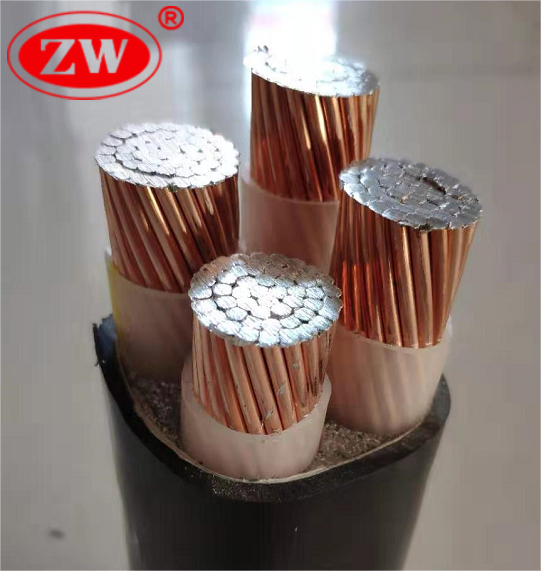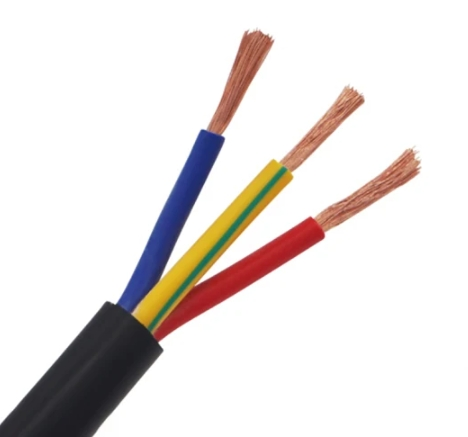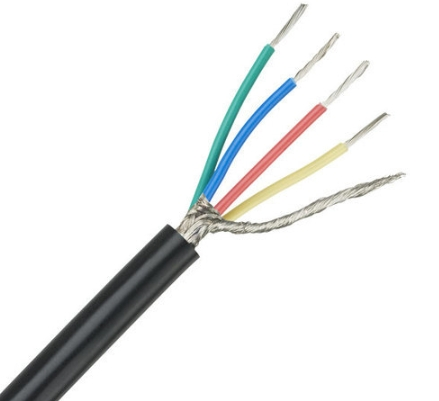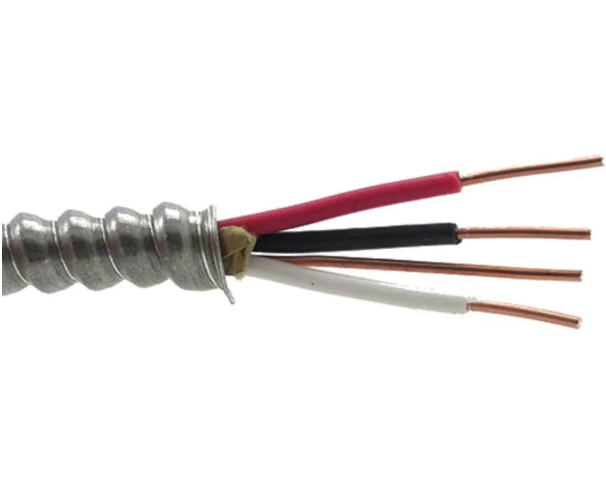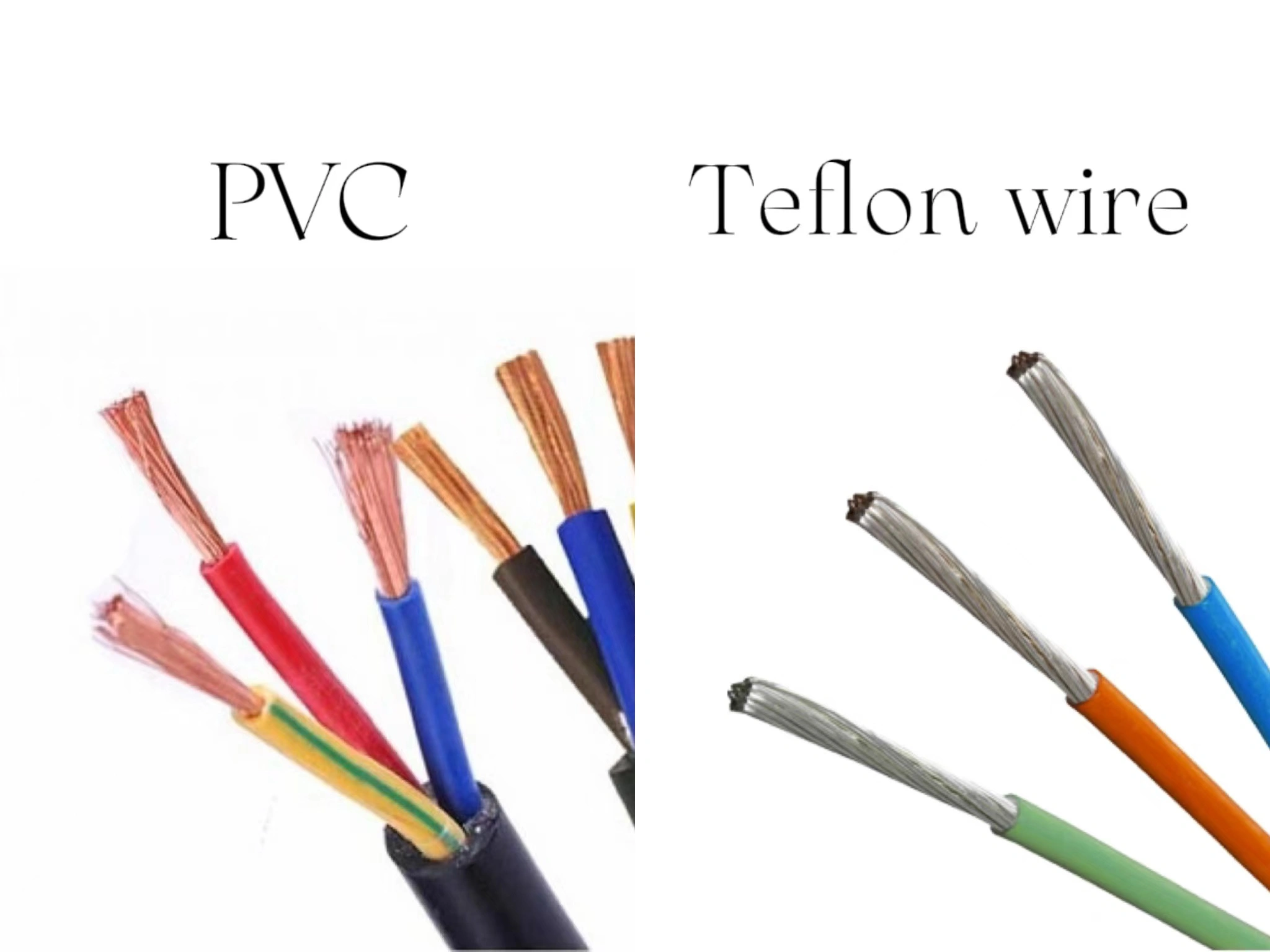When it comes to the dynamic and evolving landscape of electrical conduction and cable manufacturing, the choice of wiring plays a pivotal role, as it is crucial in determining the quality and efficacy of a system. Oxygen-Free Copper (OFC) and Copper-Clad Aluminum (CCA) wires stand out as significant options, particularly in the realm of speaker wiring. These two types of wires, each with their unique properties and applications, offer different advantages that can significantly impact the performance of audio systems.
This blog aims to provide a comprehensive comparison between OFC and CCA wires, shedding light on OFC wire meaning, applications, and suitability for various audio setups, including highlighting the best OFC speaker wire. For both audiophiles and professional electrical engineers, grasping the nuances of CCA vs OFC power cable is essential in making a well-informed choice that best suits your specific requirements and preferences.
What is oxygen free copper wire?
Oxygen-Free Copper (OFC) wire is a high-purity copper wire notable for its significantly reduced oxygen content, typically below 0.001%. This reduction in oxygen levels, achieved through specialized manufacturing processes, enhances the wire’s electrical conductivity and makes it less susceptible to corrosion and oxidation. As a result, OFC power wire including “1/0 OFC wire” and “0 gauge OFC wire,” offers improved durability over standard copper cables. Its superior conductivity and flexibility make it an ideal choice for high-end audio systems, where it minimizes signal distortion, as well as in various high-performance electrical applications like transformers and motors. However, this also raises a key question: is it worthwhile to choose between OFC wire given their characteristics?
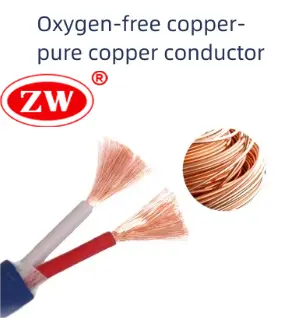
Is OFC wire worth it?
The decision to opt for Oxygen-Free Copper (OFC) wires involves a careful evaluation of various factors. These include the specific demands of the application, budget limitations, and the desired performance level. Key aspects to consider in this decision-making process are:
- Superior Electrical Conductivity: OFC copper wire offers higher electrical conductivity compared to standard copper wires due to its low oxygen content. This makes it an excellent choice for applications where minimal signal loss and distortion are critical.
- Durability and Longevity: The reduced oxygen content in OFC wire makes it less prone to corrosion and oxidation. This results in a longer lifespan and more consistent performance over time, which can be a significant advantage in environments where wire maintenance or replacement is difficult or costly.
- High-Quality Audio Performance: In the realm of audiophile and professional audio setups, OFC wire is frequently the preferred choice. Its standout feature is the high-fidelity transmission of sound signals, making it a go-to option for applications where audio quality is of the utmost importance. This is especially true in scenarios like car audio systems, where OFC wire’s superior properties can significantly enhance sound clarity and detail, offering a noticeable improvement over standard wiring options.
- Cost Consideration: OFC wire is generally more expensive than regular copper wire. The decision to use OFC should be weighed against the budget and whether the benefits of higher purity copper provide a justifiable return on investment for the specific use case.
In summary, if your needs center around high conductivity, exceptional audio quality, lasting durability, and your budget permits, then opting for Oxygen-Free Copper (OFC) wire is a prudent choice. However, for general-purpose applications where these enhanced properties are not critical, CCA wire might be a more cost-effective option. Understanding the value of OFC wire leads us to explore its specific application in speaker systems.
What is OFC speaker wire?
Oxygen-Free Copper (OFC) speaker wire, known for its high purity and excellent electrical conductivity, is a premium choice in the audio industry. This low oxygen level enhances the wire’s conductivity, ensuring minimal signal loss and distortion, crucial in high-fidelity audio applications. The purity of OFC not only improves signal transmission but also increases the wire’s durability and resistance to corrosion, leading to a longer lifespan and consistent performance.
Ideal for high-end audio systems, OFC speaker wire is favored by audiophiles and professional sound engineers for its ability to deliver clear, high-quality sound. While it is more expensive than standard copper or Copper Clad Aluminum (CCA) wires, its superior sound quality and reliability make it a worthwhile investment for applications where audio performance and durability are paramount. The qualities of OFC speaker wire make it a top choice for many, yet CCA wire also offers unique advantages worth exploring.
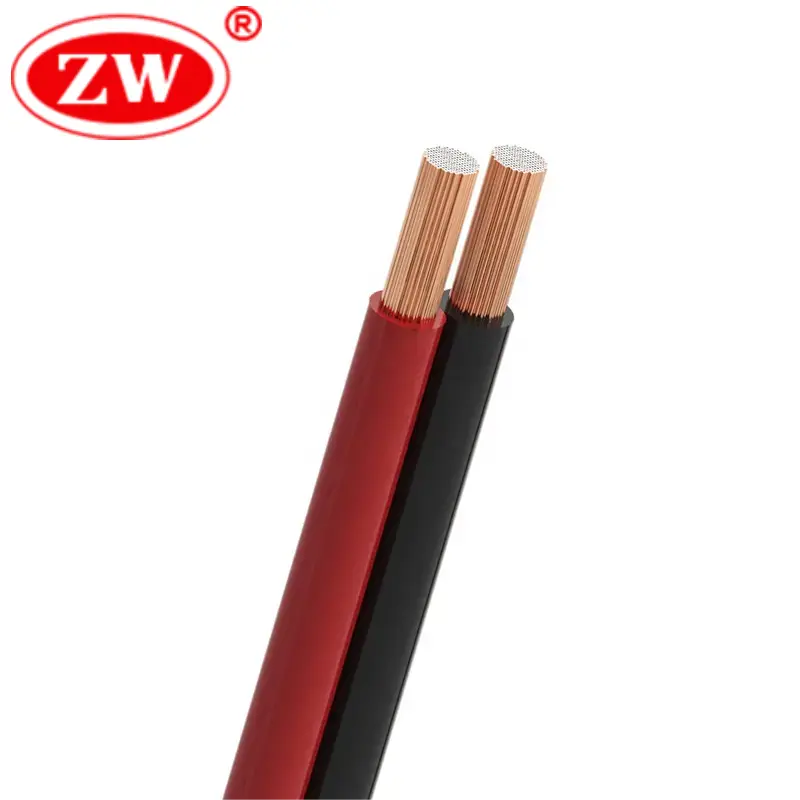
what is cca wire used for?
Copper-clad aluminum (CCA) wire is commonly used in applications where high conductivity is not the primary concern. It is made of an aluminum core coated with a thin layer of copper. This construction makes CCA wire much more cost-effective than pure copper wire, making it a popular choice for budget-conscious projects.
CCA wire is commonly used in low-voltage applications. It can be found in applications such as:
- Residential and commercial building wiring: Weight and cost savings are essential for power distribution. CCA wire can be a cost-effective alternative to pure copper wire while providing acceptable conductivity.
- Coaxial cables and Ethernet cables: The wire’s weight and cost are significant considerations for telecommunications and data transmission. CCA wire offers a compromise between performance and affordability.
- Automotive applications: CCA wires have become increasingly popular in automotive applications, especially in vehicles where weight reduction improves fuel efficiency. These wires are used in electrical systems such as lighting, audio, and electronic systems, providing a lightweight alternative to copper wires.
- Speaker cables: In-home and professional audio systems, CCA wire is often used for speaker cables due to its lower cost than solid copper cables, making it a popular choice for budget-conscious installations.
Is copper clad aluminum wire good?
Copper Clad Aluminum (CCA) wire presents a different set of characteristics. It features an aluminum core coated with copper, offering a lightweight and more affordable alternative to pure copper wires. While CCA wires do not match the conductivity levels of OFC wires, they are adequate for many applications.
The lower conductivity of CCA wire is a consideration in its use, especially in scenarios where signal integrity is critical. However, for applications where cost and weight are major considerations, such as CCA wire for automotive use or in budget home setups, CCA wires offer a viable solution.
The combination of aluminum and copper in CCA wires brings a balance of decent conductivity and reduced weight. This makes it easier to handle and install, particularly in applications where wiring needs to navigate through complex or tight spaces. With an understanding of what CCA wire meaning, While CCA wire holds its advantages, especially in cost and weight, comparing it directly with OFC wire reveals more about each type’s suitability.
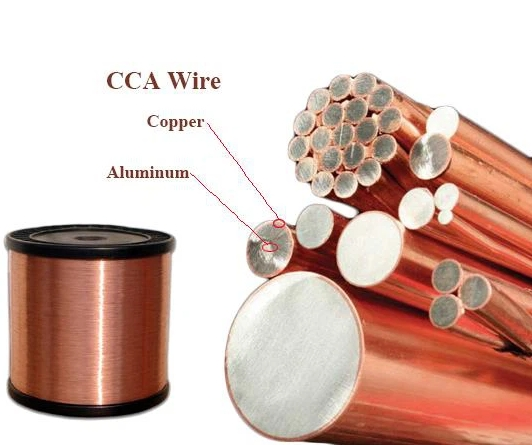
CCA vs OFC speaker wire
A head-to-head comparison of CCA and OFC wires reveals their distinct advantages and suitability for various systems. In comparing Copper Clad Aluminum (CCA) and Oxygen-Free Copper (OFC) speaker wires, key differences emerge in terms of electrical conductivity, durability, weight, cost, and application suitability.
- Conductivity: OFC speaker wires excel in conductivity, ensuring minimal signal loss and superior sound quality. This is crucial in setups where audio quality cannot be compromised. Copper clad aluminum speaker wires, while less conductive, can still perform adequately in less demanding environments.
- Durability and Corrosion Resistance: The low oxygen content in OFCspeaker wire enhances its resistance to corrosion and oxidation, contributing to a longer lifespan and consistent performance. CCA wire, despite the protective copper cladding, has an aluminum core that is more prone to oxidation, particularly in harsh environments, which can affect its longevity and performance.
- Application Suitability: OFC speaker wire is the preferred choice for high-end audio systems and professional sound setups where superior sound quality and reliability are crucial. On the other hand, CCA speaker wire is suitable for general audio applications like home theaters and car audio systems, where extreme fidelity and long-term durability are not as critica
- Cost: OFC wire is generally more expensive, reflecting the higher cost of pure copper and the specialized process to reduce oxygen content. Meanwhile, CCA wire is more cost-effective, as aluminum is cheaper than copper, making it a budget-friendly option for many consumers.
The choice between CCA and OFC speaker wires hinges on the specific requirements of the audio system, balancing factors such as sound quality, durability, flexibility, cost, and the specific application’s demands. OFC wire is ideal for high-quality audio applications, while CCA offers a cost-effective and lightweight alternative for more general uses.

OFC VS CCA Wire Conclusion
In the intricate discussion contrasting OFC VS CCA wire, it becomes clear that each wire type is uniquely suited to distinct industry demands and applications. Oxygen-Free Copper wires, known for their specific attributes, are integral in applications where certain electrical properties are paramount. An example of this is the use of orange wire, often an OFC type, in specialized electrical systems where color coding for safety and identification is crucial. Conversely, Copper Clad Aluminum wires, characterized by their unique blend of qualities, find relevance in scenarios where different factors are prioritized.
As the industry evolves, manufacturers like ZW CABLE will continue to play a key role in advancing cable manufacturing technology. Our expertise in balancing the performance of OFC vs CCA electrical wire ensures that our customers’ needs are met with precision and efficiency.
For those seeking OFC wire near me and OFC 0 gauge wire, our extensive network and online presence offer easy access to high-quality OFC products. ZW CABLE demonstrates masterful proficiency in handling the subtle nuances of various materials, highlighting their commitment to providing bespoke solutions while steadfastly adhering to the highest standards of quality and innovation. With our blend of technical expertise and market insight, we ensure you find the perfect wire for your project, effortlessly and efficiently.
Below are some common OFC VS CCA Wire FAQs:
What are the installation considerations for OFC and CCA wires in complex systems?
Which wire type is more cost-effective for general-purpose applications: OFC or CCA?
For general-purpose applications, CCA (Copper Clad Aluminum) wire is more cost-effective compared to OFC (Oxygen-Free Copper) wire. CCA offers a good balance of performance and affordability, making it a suitable choice for applications where the highest conductivity or audio quality is not the primary concern.
cca vs ofc resistance?
When deciding between OFC (oxygen-free copper) and CCA (copper-clad aluminum) wire, it’s important to consider that measurements have shown a difference between the two. CCA wire has a thin layer of copper over an aluminum core which leads to higher resistance than pure copper wire. You can buy larger awg wire to provide the same resistance as pure copper. For instance, if you need a 12 AWG wire, you’ll need to purchase 10~11 AWG CCA instead. Moreover, the copper layer on many CCA wires is thin enough that tightening a connection can strip the copper, potentially leading to worse connectivity.

